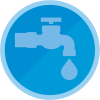Tell the Economic Story of Your National and State Parks & Heritage Areas Without Hiring an Economist, June 16 - July 14, 2021

Do you think you need to hire an economist and wade through piles of complex data to understand the economic benefits that a nearby national or state park has for your community? Do you think the most you can expect is a soundbite on jobs and income the park supports? Learn to paint a broad, research and data-based picture of the economic effects of your park and tell that story to support advocacy, fundraising, economic development, and stronger community-park relationships. You will learn and adapt a proven approach that engages community resources without hiring an economist, consultant or communications shop.
A tremendous body of studies has substantiated the economic value of parks, heritage areas and sites, and other protected areas. These can be useful in helping you make your case, but it’s even more compelling to speak directly about the benefits of your park, your heritage area, your community.
In this course, you will:
- Adapt Harbinger’s “engaged analysis” approach to outline a park economic study for your area.
- Identify goals and match up data sources, research methods and resources for conducting your study.
- Learn how to assess and describe a range of park-related benefits, and how to create simple, realistic ballpark economic projections.
- Learn when, whether and how to update old economic studies.
- Learn the basics of interpreting findings and presenting data to different audiences.
- Review model studies and reports from other parks and protected areas.
- Identify trusted messengers for your target audience and make a plan to engage them.
IS THERE HOMEWORK?
There is no specific requirement for work outside of the sessions. This course will equip you to apply these analytic and communications approaches yourself, and it’s designed so you can work with the information at your own pace (during the course and/or later). While there is no required homework, plan to spend about an hour a week between sessions thinking about how the concepts and tools could be applied to your area. This make it easier to dive in at more depth later.
To fast-track the outcomes, you can invest several hours a week as the course progresses and end the course with a good collection of park-specific analysis and findings. Then, take advantage of the included coaching call to fine-tune.
WHO IS THIS FOR?
Park friends groups and advocacy organizations • Park staff • Chambers of Commerce & business alliances • Conservation & historic preservation groups • Community & economic development staff • Extension & community development professionals • High school and college students • Downtown & Main Street groups • Journalists • Consultants
COURSE INSTRUCTOR
Michele Archie, Harbinger principal and lead for collaborative regional economic analyses, economic impact projections, visitor and resident surveys, outdoor recreation assessments, and peer area reviews. Michele has led more than three dozen such studies for national and state parks, World Heritage Sites, trails and other recreational and protected areas across the United States.
SESSION DATES AND TIMES
Five weekly sessions
Wednesdays. June 16 - July 14, 2021
11 a.m.-12 p.m. PT/2-3 p.m. ET
MORE DETAILS
Sessions available for replay in case you need to miss a session or want to review.
Includes a post-course one-on-one or team consultation session to address your particular situation and needs.
Early registration discounts still available: $425 ($525 regular course fee)
Discounts for two or more participants from the same organization or community: $375 ($425 regular group rate)
Inquire about special discounts and arrangements for groups of 5 or more. We often work with cohorts in our courses, and can create a custom package including group meetings and coaching during and/or after the course.
SESSIONS
Five, one-hour live webinars with time for discussion and learning from other participants. Available for replay in case you miss a session or want to listen again.
Session 1: The Engaged Analysis Approach
• Engaged Analysis basics
• Data collection tools & results
• Define your objectives & study area
• Identify available resources
Session 2: Impacts of Tourism and Park Operations
• Data sources and methods for analyzing economic impacts
• Creating realistic estimates without complete data
• When and how to update existing studies
Session 3: Local Quality of Life and Area Attractiveness
• Activity levels, health and healthcare cost savings
• Community identity and pride
• Appeal to residents
• Community engagement
• Heritage and culture
Session 4: Other Park Benefits
• Ecosystem goods and services
• Research and education
• Fish and wildlife habitat
• Landscape connectivity
Session 5: Telling Your Story
• Alternatives for presenting your findings
• Basics of data presentation
• Tailoring to your audience
• Using trusted messengers


